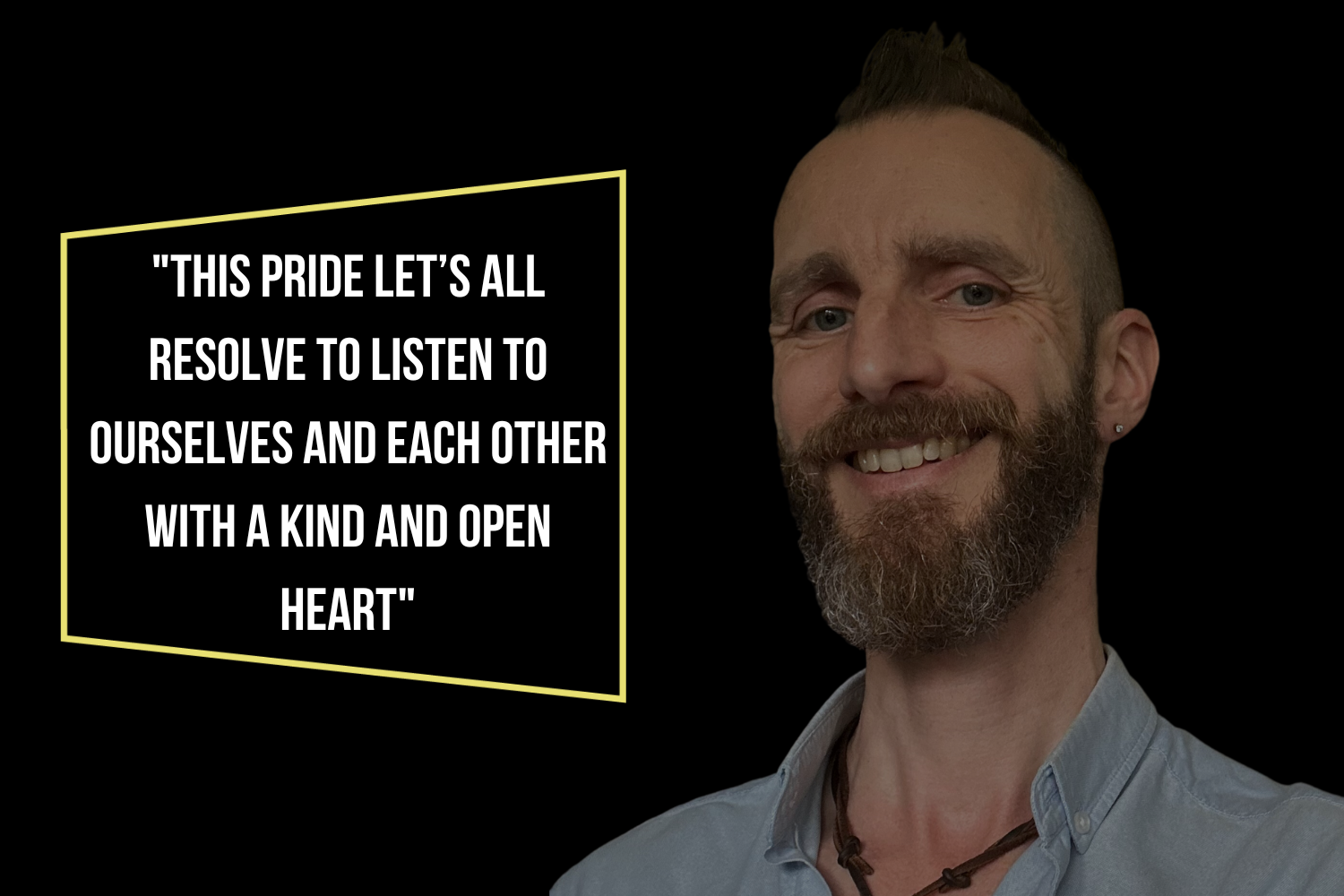Welcome to the second of our Pride blogs, featuring a series of our amazing guest speakers for the month. This week we have an interview with Nick Kientsch, a former Buddhist monk and a meditation and mindfulness expert supporting the LGBTQ+ community with mental health and minority stress.
Q: What areas do you think we still have work to do to support the LGBTQ+ community?
Our lives are like an archaeological site where the early years create layers that lay forgotten under the surface of the present but still impact the surface.
The experiences we have as a child impact our adult life and how safe we feel as they determine if our central nervous system is able to navigate life easily having internalised the message “I am safe and cared for, people respect me” or is over alert to danger and fear due to having internalised a message “the world is dangerous, I am not safe”.
We all want to be happy, but when our past has shaped us to find happiness harder to find life can feel more stressful.
Q: What is it that shaped us as children that most impacts our wellbeing now as adults?
One thing that nearly every LGBTQ+ person shares is the experience of minority stress. I only learnt about this term a few years ago but it was a light bulb moment for me.
Minority stress is the experience any person who is a minority in a majority culture feels when they experience prejudice, discrimination or rejection based on their skin colour, ethnicity, gender, sexuality or some other distinct quality that is part of their identity but that the majority culture around them does not value.
Q: That sounds intense, what impact does minority stress have on people?
There’s a saying “sticks and stones will break my bones but names will never hurt me” – what a lie! It is the words and the derision we experience as a child for being ‘other’ that is so corrosive to self-worth. I still remember seeing a comedy sketch when I was 9 years old where three Christian monks stood on a street and each had a halo above their heads. A woman walked past and the monk on the left lost his halo as he felt desire. Then another woman walked past and the monk on the right lost his. They looked at the monk in the middle who still had his halo with respect….but then a man walked past and the monk in the middle lost his halo.
This could have been a commentary on how not to assume all people are straight, but what happened next burned into my memory. The two monks on either side backed away leaving him alone. He looked ashamed and the audience laughed at him. As that 9 year old I sat with this horrible sense in my body that whilst I did not know why, I had something in me that made me like this man and that I too would be rejected, despised and laughed at. It was the start of being ashamed of who I was and going into hiding so that for all of my teens I would desperately try to hide, even from myself, that I was gay.
We may have had parents who were homophobic and as a child had to listen to their rants and so even home did not feel safe. These many micro aggressions lead to complex PTSD, where people start to be hyper vigilant, find it difficult to trust themselves and others and are constantly on alert for danger. This shame, low self-worth and hyper vigilance leads to a feeling that there is something wrong with me, that I am bad or flawed and the world is not safe. So much of the issues we experience in our community of addiction, self-harm, drug use and difficulty of forming sustaining relationships comes from this early wounding. We self-medicate to escape the pain, or become caustic to defend ourselves from threat.
Q: How do we heal this?
Brené Brown says "shame needs three things to grow exponentially in our lives: secrecy, silence, and judgment." Her suggestion for healing shame is empathy, both from ourselves but also from others who we can share this shame with. Meditation is a space where we learn to bring a non-judgemental and loving attitude to whatever shows up inside us. When we learn to face the emotions we fear and want to forget with kindness, non-judgmental listening and compassion then our own self-empathy brings healing.
We also heal by sharing our stories and hearing others speak, so that we learn we were not alone, feeling empathy for those who share their story with us and being held with empathy as they listen to us. We need these spaces where we feel trust and can openly share. This may be with friends, a therapist or on workshops. This is what I do in my minority stress workshop, where people have had some powerful moments of healing through being heard with empathy. Reading biographies of LGBTQ+ people or seeing films or TV series where you can see your own experience in another is another way to get this sense of a shared experience.
This PRIDE let’s all resolve to listen to ourselves and each other with a kind and open heart.
Nick has had a meditation practice for 30 years and lived as a Buddhist monk for 7 years. Over the last 14 years he has held space for gay/bi/trans men at a weekly meditation class that meets every Monday in central London.
Check out Nick's free guided meditations, talks and social media links. If you are interested in booking Nick to speak at your company or event, get in touch at hello@thatday.uk
